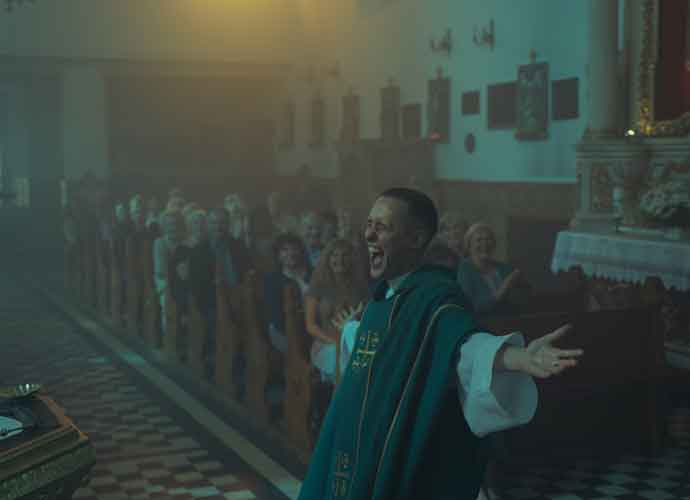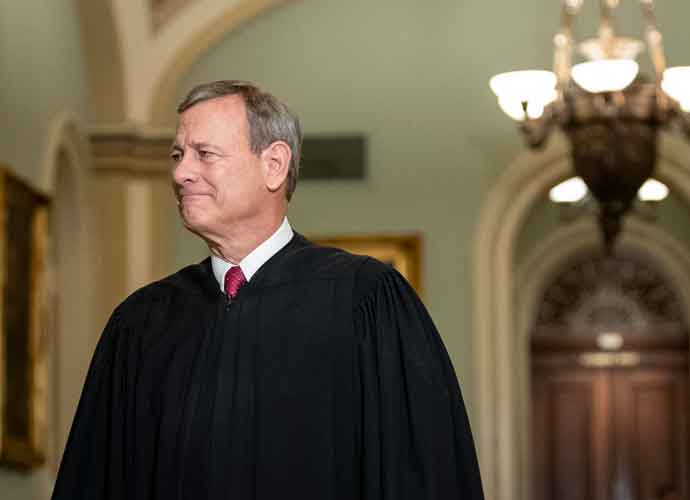‘Corpus Christi’ Movie Review: Poland’s Oscar Submission Stuns

4.5/5
The nominees for the Academy Award for Best International Feature Film are consistently some of the year’s best movies, and 2019 was no exception. The obvious standout is the Korean master Parasite, which has held American audiences captive since its release late last year.
As with Roma two years ago, the absolute brilliance of Parasite has the negative side effect of overshadowing the great films nominated alongside it in the category. In 2018, Polish auteur Paweł Pawlikowski had his brilliant tragedy Cold War overshadowed by the quiet genius of Alfonso Cuarón‘s feature, and this year Corpus Christi is poised to be another masterwork of Polish cinema likely to be overlooked by another film’s hype.
Director Jan Komasa has crafted a strange but subtle observation of small-town Polish life with big-time repercussions. Bartosz Bielenia takes on one of his first leading roles as Daniel, a juvenile convict recently paroled and looking to start his life anew. Though he is assigned to work at a sawmill in a village deep in the countryside, a brief but plausible series of lies and confusions causes him to step in as the village’s parish priest.
While many directors would endlessly milk the comedy out of this scenario, Komasa is far more interested in the emotional and moral repercussions of Daniel’s decision. Though the village is small, the stakes at play are not: tragedy has recently struck the town in the form of a car crash that kills six young people and a village pariah. The prejudices and repressed hatred that lie beneath are soon revealed after Daniel’s arrival, and he is forced to navigate this tangle of guilt and frustration all while keeping up his religious façade.
The focus on small-town religion strife is reminiscent of Michael Haneke‘s 2009 masterpiece The White Ribbon but with the added element of Daniel’s own personal evolution and transformation. Without spoiling anything, he is fleeing more than just a life at the sawmill, and his past eventually catches up to him in more than one way. He comprises a fantastic central figure around which to situate the film, and Bielenia’s emaciated figure and stark performance is as magnetic as it is concerning.
Eilza Rycembel turns in a fantastic performance as Marta, an unlikely companion to Daniel and a young woman with a unique involvement in the tragedy. Veteran actor Aleksandra Konieczna also provides a quietly beautiful performance as a church caretaker with no shortage of her own problems. While the film may occasionally drift a little far towards the parodic or obvious in its middle act, Daniel’s successes and shortcomings as a false priest feel remarkably true within the context of the film itself. All of the truths he uncovers in his occupation are truths any viewer of the film will undoubtedly be able to commune with — truths whose relevance lasts far beyond the film’s two-hour runtime.
As moving as the film is in its ethos, it is technically constructed with just as much mastery. Of particular note is the camerawork, which maintains an incredible sense of control until the film’s chaotic and jarring final moments. Corpus Christi is a film that draws you in with its subtleties, only to then shock you as it approaches its end. It’s a film many might refrain from calling beautiful for all of its consideration of ugly things, but if any film has ever found beauty in the grotesque, it is surely this one.
RELATED ARTICLES
Get the most-revealing celebrity conversations with the uInterview podcast!







Leave a comment